Woman alleges doctor denied her entry to his surgery because of her certified assistance dog
A woman claims she was made to feel like a ‘second class citizen’ when a doctor allegedly asked her to wait outside and would not let her enter through the front door because of her assistance dog.
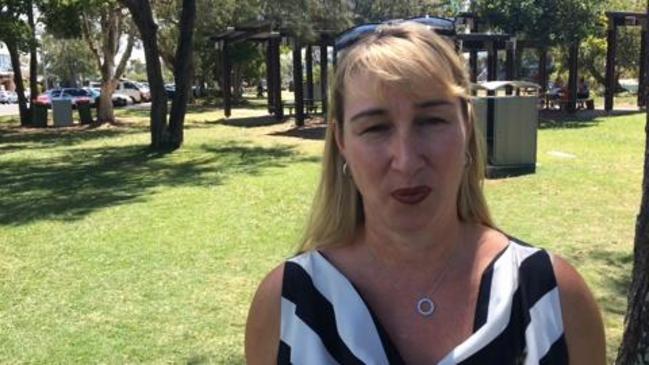
QLD News
Don't miss out on the headlines from QLD News. Followed categories will be added to My News.
The Office of the Health Ombudsman is investigating after a Gold Coast woman alleged a doctor refused entry to his surgery because of her assistance dog.
Cheryl Cogan, 55, said she was made to feel like a “second class citizen” after she was allegedly asked to wait outside a Varsity Lakes doctor’s surgery for about 45 minutes with her accredited service dog, Poppy, and was then only permitted entry via a back door on May 21.
But the she claimed the doctor – who did not return two calls seeking comment Tuesday and then hung up when he answered Tuesday night – said it was his prerogative to deny them entry as it was his private practice.
Ms Cogan said she had made an appointment to see Dr Prajwal Das at the Lake Orr Family Practice to ask him to sign some paperwork for her mother, who Dr Das has treated since she moved into an aged care home in February.
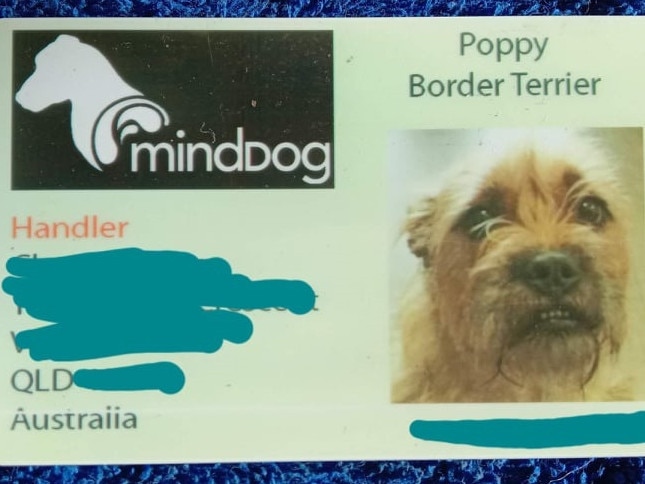
The Varsity Lakes woman – who suffers from agoraphobia, anxiety, depression and social anxiety – said what was meant to be a quick trip in for a signature turned into one of distress and humiliation after she said was asked to wait outside with Poppy.
“Dr Das only goes to the aged care centre once a week early in the morning, or so I was told,” she said.
“Because he was now treating my 78-year-old mother, (who suffers from dementia), and I had not yet met him I wanted to meet him. I also had her end of life wishes that he needed to sign.”
Ms Cogan said there was no one in the doctor’s surgery when she arrived except for the receptionist.
“She obviously told him I had Poppy as she came out and said ‘the doctor would like you to wait outside with your dog’,” she said.
“I said ‘we’re not legally required to’ but I acquiesced to his request at that time because I had never met this doctor, and he’s looking after my mum, so I did not want to upset him in any way.
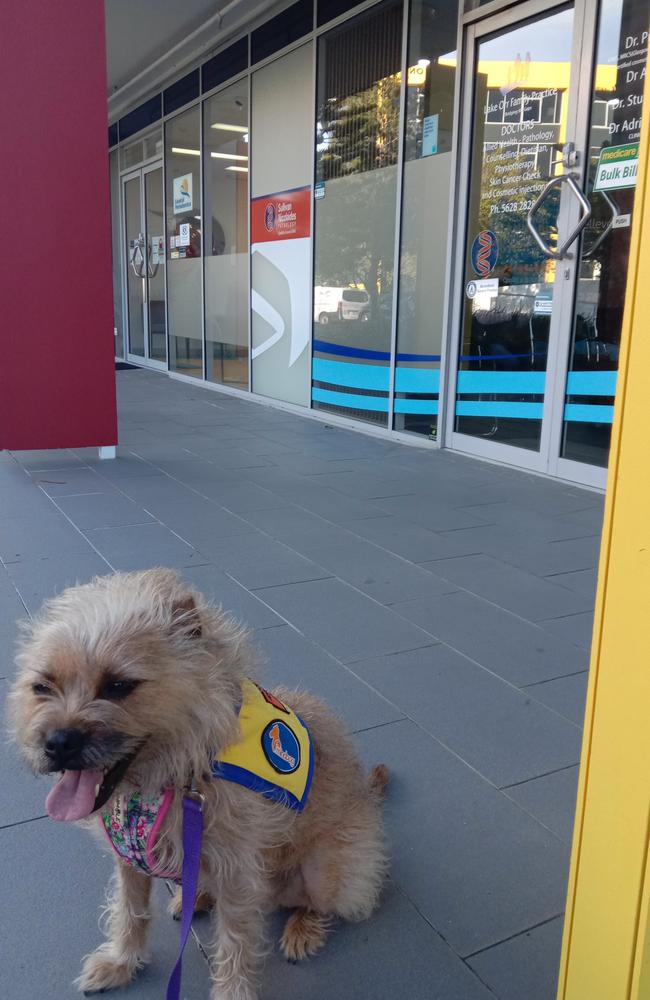
“We ended up being outside for 45 minutes. … In that entire time, two other ladies walked in and walked out together, they didn’t even have to wait in the waiting room.”
Ms Cogan said Poppy – her second assistance dog in 10 years – was accredited through mindDog Australia and was wearing her yellow and blue work vest.
“It has a patch that says ‘mindDog Mental Health Assistance dog’ written on it,” she said.
“I also carry a little card that has all of our rights on it and where we’re allowed to go … which I had given to them.”
mindDog Australia is a not-for-profit organisation that assists mental health sufferers to train and certify psychiatric assistance dogs.
The card states the border-Irish terrier cross is a service dog protected under Australia’s Federal Disability Discrimination Act and includes a list of venues certified dogs are permitted, including “dentists and doctors surgeries.”
Ms Cogan said when Dr Das and the receptionist came outside, he suggested they sit on some stairs for the appointment until she showed them the rights of access list again.
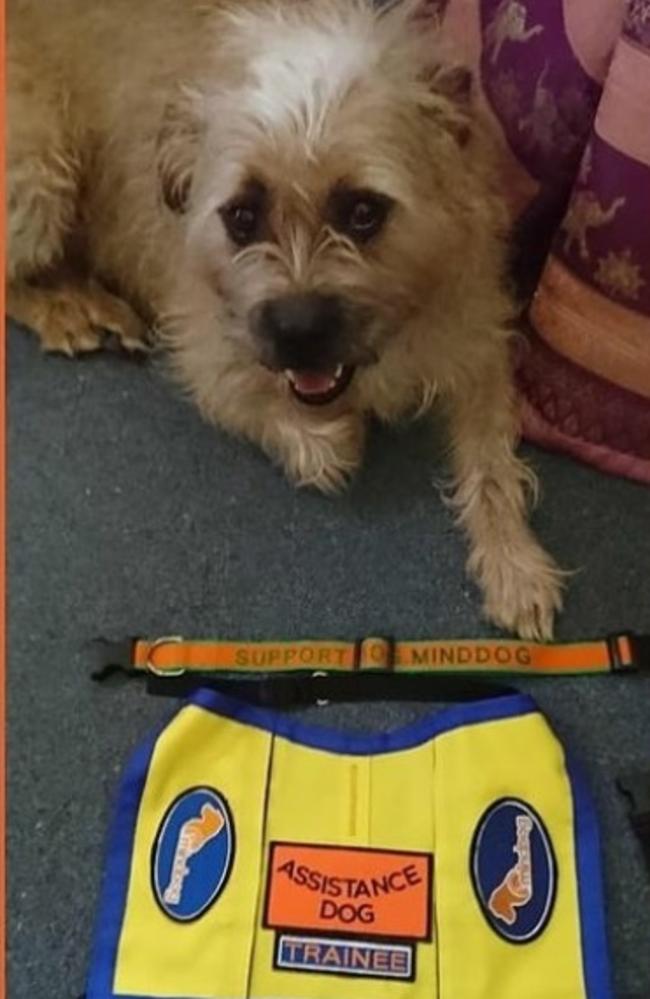
When Dr Das then allegedly offered entry through a back door, Ms Cogan declined.
I said ‘No, I will go in the front door like a normal person, not like a second-class citizen,’ so he then said ‘I will meet you over at the (aged care centre) then’,” she said.
“He was saying ‘this is my practice and I make the decisions as to who comes in’ and I said ‘no, you’re breaking the law by refusing us entry’.
“Obviously he didn’t believe in mental health support dogs.”
Ms Cogan said she left humiliated and angry and lodged a discrimination complaint with the Office of the Health Ombudsman (OHO) and the Human Rights Commission when she returned home.
“It’s absolutely disgraceful for a doctor to do that,” she said.
“Some of his patients must suffer with mental health problems, and now he’s gone and exacerbated mine by doing that to me.”
Several attempts to seek comment from Dr Das were made by the Courier Mail, but he did not return calls during business hours Tuesday and refused to comment when reached Tuesday night, except to say there were restrictions because of the coronavirus pandemic.
“When we are working in a pandemic we have some restrictions,” he said.
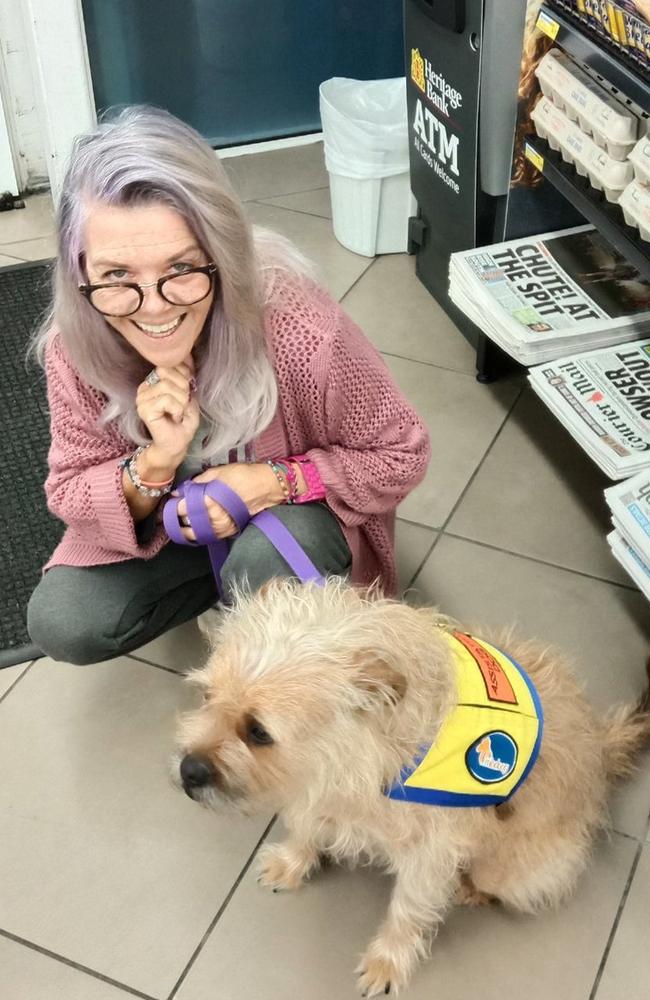
When questioned about the assistance dog, Dr Das said “there was nothing. There was a piece of paper, but there was nothing stamped and signed,” before he hung up.
When the Courier Mail immediately called back, a woman answered and also hung up after saying they would “not be talking about anything.”
A letter from the OHO received by Ms Cogan late Tuesday confirmed her complaint had been accepted with a recommendation of first going through a dispute resolution process.
“The delegate formed the view that the local resolution process may provide an opportunity for the parties to informally resolve the complaint quickly with minimal intervention by us,” it states.
A spokesman from the Department of Seniors, Disability Services and Aboriginal and Torres Strait Islander Partnerships has yet to return a call for comment about the rights of those with service dogs
But the Queensland Guide, Hearing and Assistance Dogs Act 2009, which operates under the banner of the Federal Disability Discrimination Act 1992, states “persons with disabilities have the same rights to equality before the law as the rest of the community.”
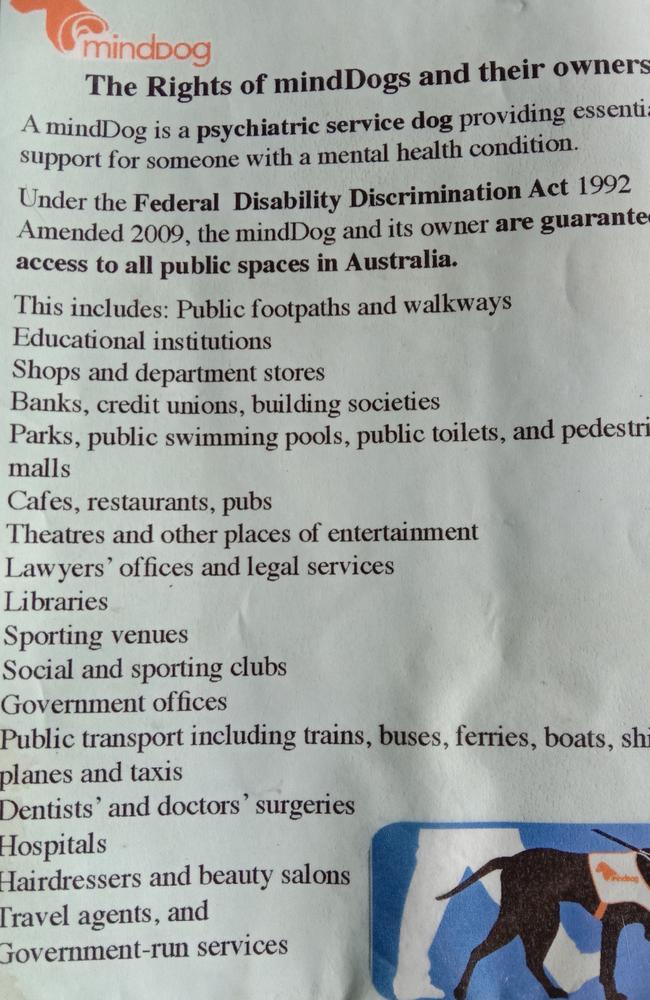
“Under the Commonwealth legislation, discrimination includes treating a person with a disability less favourably because that person is accompanied by a guide or hearing dog, or other animal trained to assist them to alleviate the effect of their disability,” it states.
“Guide, hearing and assistance dogs perform a range of tasks to help people with a disability in their everyday lives. Guide dogs help people who are blind or vision-impaired to move freely in the community.
“Hearing dogs alert their deaf or hearing-impaired owners to specific sounds … Assistance dogs help people with physical, sensory, or psychiatric disabilities.”
Individuals who discriminate against those with service dogs can be fined up to $10,000 while executive officers of privately owned businesses can be fined up to $50,000 if they are found to not be in compliance with the Queensland Guide, Hearing and Assistance Dogs Act.


